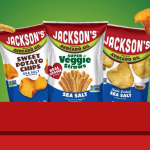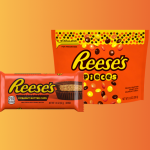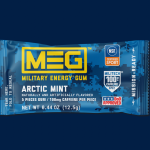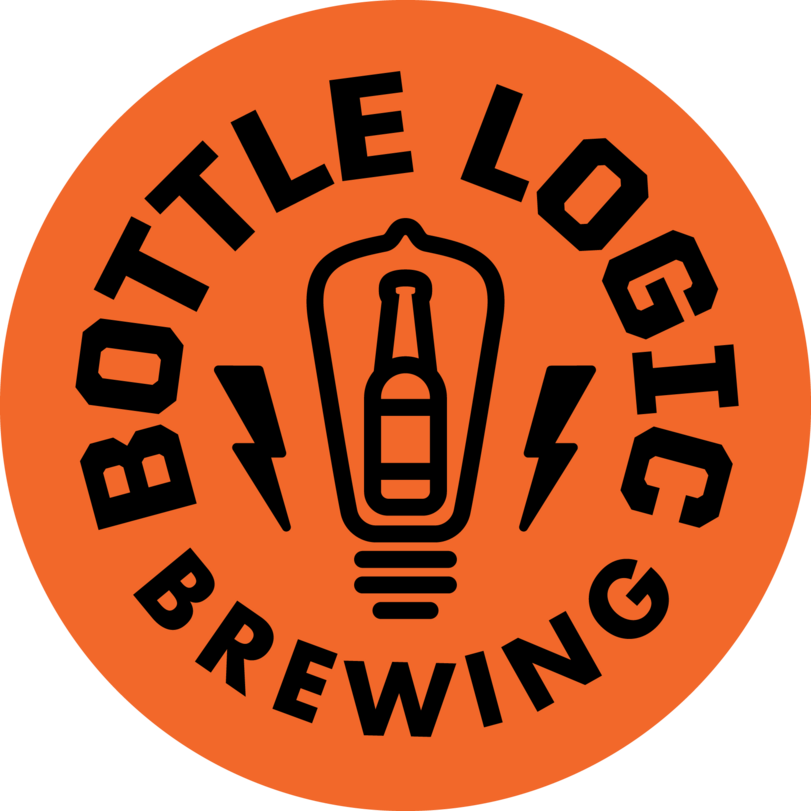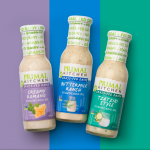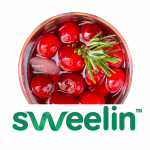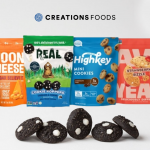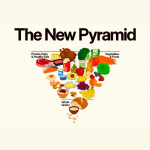Bragg Targets ACV Gummies After Survey Reveals Confusion
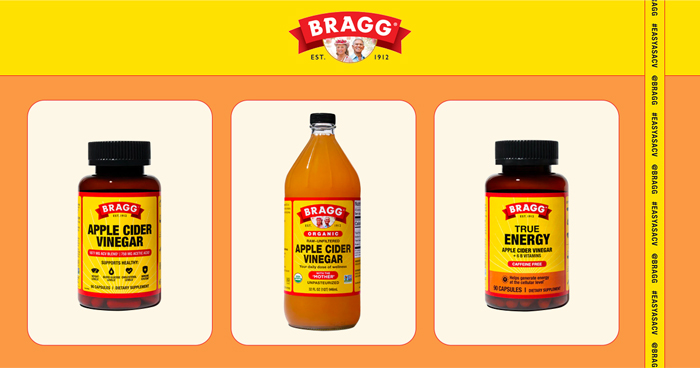
Bragg Live Food Products is probing another flank in its ongoing attack on apple cider vinegar fueled gummy supplements, which it considers a threat to the business health of the 110-year-old brand.
A few weeks after an unsuccessful regulatory battle against leading ACV gummy brand Goli, Bragg, which largely sells liquid ACV and ACV-based drinks, released a survey it had commissioned that found significant consumer confusion about the efficacy of various ACV gummy supplements on the market.
That could potentially hurt the entire category, notes Bragg CEO Linda Boardman.
“It was alarming to us to start to see this trend of these really inefficacious supplements hitting the market,” Boardman said. “We know that people who are really passionate about using apple cider vinegar for health reasons buy products across formats, and we felt that it really puts a negative halo on ACV when you’re buying a product that really has no more ACV health benefits than if you were eating a candy.”
According to the survey, which was conducted by Ipsos, 50% of respondents said they have used ACV products for health reasons, of which 21% are current users. Among current users, 58% said they believe that ACV gummies have the same functional benefits as liquid ACV, despite a lack of clinical documentation proving that gummies contain an efficacious dose of 750 mg of acetic acid, the active ingredient in the vinegar that benefits blood glucose, cholesterol and weight management.
Overall, the survey found a lack of consensus among respondents on whether or not ACV had tangible health benefits. Among current and past users, 42% said they noticed an improvement in their health, while 30% did not and 28% were unsure. Younger consumers, aged 18-34, were more likely to have seen an effect (61%) from ACV than the 35-54 demographic (39%) and those older than 55 (21%). In total, 45% of all respondents – including non-users – did not know whether or not ACV gummies provided the same health benefits as liquid ACV and 37% said the two formats are comparable.
The survey results arrive after the National Advertising Review Board (NARB) upheld a prior National Advertising Division (NAD) ruling that supported supplements brand Goli Nutrition’s right to use the term “Apple Cider Vinegar” in the name of its gummy supplements. Bragg filed the challenge against Goli last year, alleging that the name of the gummies, which launched in 2019, was misleading as they contained only 25 mg of acetic acid – “far less than” the established efficacious dose. The company claimed “it would take 30 ACV Gummies to provide as much acetic acid as is available in one tablespoon of liquid ACV.”
Bragg, a California-based natural products brand, is one of the largest manufacturers of liquid ACV in the U.S.
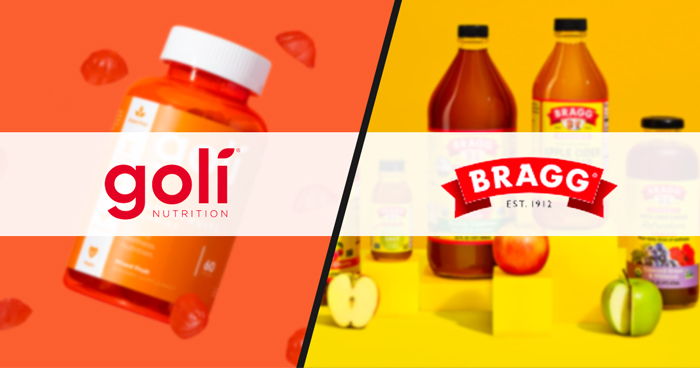
In January, an NAD review of the ACV gummies agreed with Bragg that Goli’s supplements – which are made with an ACV powder rather than liquid – did not provide an efficacious dose of acetic acid, but the committee ruled that Goli could continue to use the name because the gummies did contain the ingredient. However, the NAD advised Goli to discontinue certain claims and slogans suggesting the gummies have equivalent functionality to liquid ACV.
Though Bragg did not call out any specific competitors by name in the survey announcement, a PR representative for the brand said that the survey was not completed in time to be submitted as evidence during the NAD hearing. A press release did hint at Goli however, stating that “the leading ACV gummy brand” was advised by the NAD to remove health claims twice, in March 2021 and January 2022, “due to the lack of active ingredients.”
Founded in 2018, Goli is one of the fastest growing supplements brands in the U.S. A flier the company handed out at Natural Products Expo East 2021 last September stated that Goli is in over 80,000 U.S retail stores, ships its products to 182 countries and has a marketing budget of about $120 million annually.
Goli did not respond to requests for comment from BevNET.
Speaking to BevNET this week, Boardman said Bragg now intends to expand its marketing efforts and focus on educating consumers about the science behind ACV. She stressed that her company “doesn’t have anything in particular against” Goli and said there are a number of ACV gummy brands on the market with similarly low acetic acid levels that the brand takes issue with. Bragg’s primary concern is that allegedly ineffective products could threaten to tarnish the reputation of the entire category if consumers believe they’re not receiving any benefit.
Following the NARB appeal decision and the survey, Bragg is now pulling out all the stops to raise consumer awareness of the nutritional science behind ACV. For the legacy company, this means launching one of the largest marketing campaigns in its history.
“The company really never spent very much in marketing, it was very much a word of mouth business,” Boardman said. “So this does represent a change for us to be going out through social media, through influencers and networks trying to get this word out.”
Among these efforts are retailer partnerships to increase in-store education and digital and social advertising. Online, Bragg is tapping into its celebrity talent to reach consumers; last year pop star Katy Perry – a Bragg board member and investor who joined the company in 2019 when it was acquired by an investor group – took to Instagram for a live video session with a member of Bragg’s scientific advisory board to discuss the science behind ACV. Perry’s husband and fellow investor, actor Orlando Bloom, could also potentially step in to help promote the campaign, Boardman added.
“[The Instagram video] got quite in depth,” she said. “And it was great because she was learning even more than she already knew along the way as well. So yes, I think both Katy and Orlando are very passionate about health education and I do expect that they’ll be helping us along the way to get the word out.”
The campaign also comes as Bragg places a stronger emphasis on innovation. Boardman, who was appointed CEO in 2019 amid the acquisition, said consumer insights show a rising interest in the health benefits of ACV, but taste remains an issue for many. As new brands like prebiotic soda Poppi hit the market with ACV as a key functional ingredient, Boardman is now aiming to expand Bragg’s platform with more palatable products in a variety of formats. In 2020, the company launched its ready-to-drink Refreshers line, however, the rollout was disrupted by the pandemic and Bragg is only now initiating a bigger push on expanding it.
Bragg has also put itself in more direct competition with Goli and similar brands with a line of ACV supplements in capsule form, which launched last year. Going forward, supplements will be a key focus for Bragg, Boardman said, with additional varieties set to launch later this year.
Boardman said the company plans to debut all new supplements in test runs via ecommerce, but its first two SKUs are now rolling out to retail in chains like Kroger, Hy-Vee and Fresh Thyme, among others. As well, Boardman said Bragg overall is expanding its international business and is currently exploring potential to take the supplements to overseas markets as well.
“I think there still is a great expansion opportunity for ACV,” she said. “Right now, we’re really focused on optimizing our portfolio around that daily dose of wellness health usage. But I still think there are more horizons for Bragg in the future.”

